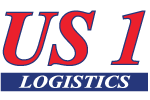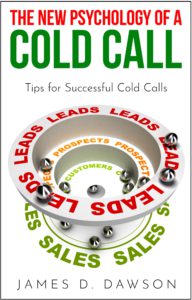Think of your plan like a manifest—every section gets you closer to your destination.
Whether you’re a new freight broker agent just getting started or a seasoned intermodal agent looking to grow your book of business, one thing is true: a business plan is your blueprint for success.
It’s what separates agents who wing it from those who build something scalable and sustainable. A well-structured plan gives you clarity, direction, and confidence — especially when the market shifts or competition tightens.
But let’s be honest — the idea of writing a business plan can feel overwhelming. Where do you start? What do you include? How detailed does it have to be?
The good news? It doesn’t have to be complicated.
You don’t need a fancy MBA or a 50-page document filled with industry jargon. What you do need is a simple, clear plan that covers the essentials: what you offer, who you serve, how you operate, and how you’ll grow. Think of it as putting your freight business on paper — your goals, your edge, your action steps.
Once you break it into manageable pieces, writing a business plan becomes less of a chore and more of a power move.
This guide breaks it down into 7 straightforward sections so you can create a roadmap that works — without getting lost in the details.
1. Executive Summary 🚛
What it is: A quick overview of your freight operation.
Why it matters: It sets the tone for your entire plan. Include your mission, target niche (e.g., drayage agent or truck freight broker), and what makes your services stand out.
Pro tip: Write this section last so you have the full picture before summarizing.
2. Market Analysis 📊
What it is: A breakdown of your target market and competition.
Why it matters: You need to know where the freight is moving, who’s moving it, and how you can move it better.
Identify trends in intermodal, LTL, or full truckload sectors. Show you understand where you fit in and how your approach as a freight agent broker gives you a competitive edge.
3. Services Offered 📦
What it is: A detailed list of what you’ll provide.
Why it matters: Clarity wins business.
Spell out whether you offer drayage, intermodal, FTL/LTL, or niche services like reefer loads or hazmat. The clearer you are, the easier it is for shippers and carriers to see your value.
4. Operations Plan ⚙️
What it is: A look at how your business runs day to day.
Why it matters: Investors, partners, and even your future self want to know how things get done.
Cover dispatch procedures, software tools (TMS, load boards), your carrier network, and workflow from quote to invoice. Show how you’ll stay efficient as a trucking agent in a fast-moving industry.
5. Sales & Marketing Strategy 📣
What it is: How you’ll bring in business.
Why it matters: A great freight agent without customers is just a great idea.
Include outreach methods like cold calling, LinkedIn prospecting, referrals, and email campaigns. Detail how you’ll position yourself among other freight broker agents — especially in competitive markets.
6. Financial Projections 💵
What it is: Your income, expenses, and goals in numbers.
Why it matters: Shows you’re serious about profitability.
Lay out startup costs, monthly expenses, commission projections, and break-even points. If you’re pitching to a partner or factoring company, this section is a must-have.
7. Business Goals & Milestones 🏁
What it is: A timeline for your growth.
Why it matters: Keeps you focused and shows progress.
Set short-term goals (e.g., “Sign 3 new carriers in 60 days”) and long-term targets like expanding your freight agent operation or becoming an independent freight broker agent with your own authority.
Final Thoughts
A strong business plan helps freight agent brokers stay focused, stand out, and scale — and that’s not just business talk. It’s your personal GPS in the competitive world of logistics.
Without a plan, it’s easy to get pulled in every direction: chasing the wrong shippers, accepting unprofitable loads, or spending too much time on admin instead of growth. But with a clear, actionable plan? You always know where you’re headed and why.
Think of your business plan as more than a document — it’s a daily guide for decision-making. It helps you:
-
Stay focused by identifying your niche and the markets that matter most
-
Stand out by clearly communicating what makes you different from other freight broker agents and trucking agents
-
Scale with intention by setting milestones and tracking your financial health as you grow
It doesn’t need to be fancy or overly complex — just complete and clear. Treat it like a manifest: every section, from your Executive Summary to your Financial Goals, helps keep your business on course and prevents you from veering off track.
In an industry where speed and clarity are everything, having your strategy mapped out gives you a serious edge.
📦 Ready to roll? Start building your business plan today and turn that freight hustle into a freight empire.



Recent Comments